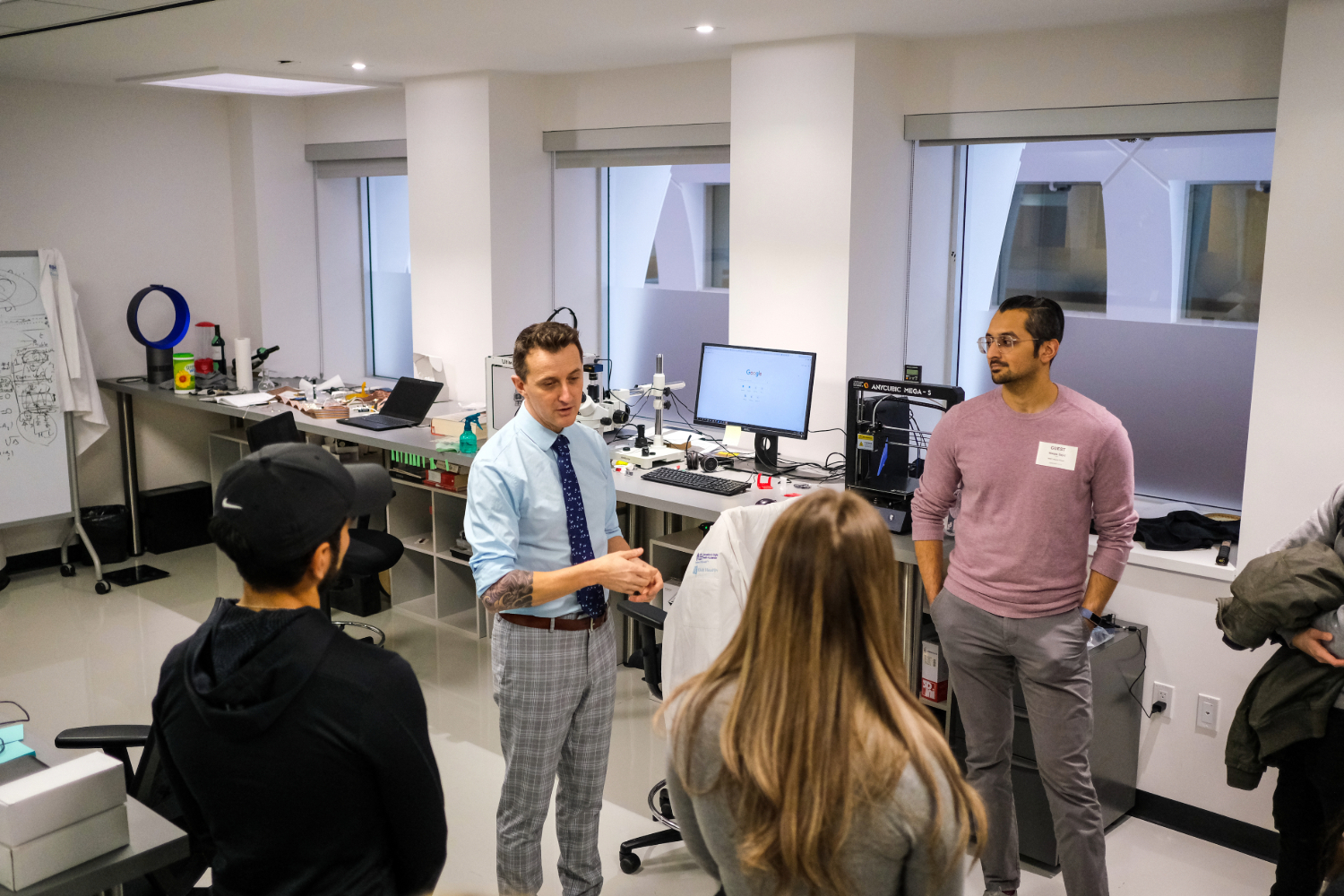Why choose the Institute of Biomedical Engineering?
The Institute of Biomedical Engineering at U of T is a leader in translational research with deep hospital partnerships and global impact.
Students gain hands-on experience, mentorship from award-winning faculty, and access to diverse career paths from medtech and startups to academia and health policy across Canada and worldwide.
Degrees at a Glance
| Professional Stream | Research Stream | |
|---|---|---|
| Degree | Master of Engineering (MEng) | Master of Applied Science (MASc); Doctor of Philosophy (PhD) |
| Candidates | Interested in a practical approach to graduate studies to advance their career in industry or pivot to a new field; interest in industry, looking to pivot careers, future med school applicants | Motivated by advanced research and academic collaboration; gateway to diverse careers including academia, government and industry |
| Program focus | Course-based with specialization through MEng Emphases and professional experience via a four-month practicum. | Research-intensive training in a laboratory setting under the guidance of a supervisor. MASc is often a stepping stone to a PhD. |
| Supervisor | Not required | Required for admission |
| Length | 1 year full-time, 2 years extended full-time, 3 years for part-time U of T MD/MEng students (Simultaneous MD/SGS Registration) | 2 years for MASc; 4 years for PhD (5 years for direct entry PhD) |
| Funding | Self-funded | Research funding available (via academic units) |

MEng Internship
Through a rigorous curriculum and a four-month internship, our MEng students gain hands-on experience and practical skills to meet the demands of the biomedical field.
Research Areas

BME's clinical engineers design technologies, devices and strategies for people with chronic disease, traumatic injury, disabilities and mobility limitations to help them integrate more fully with their environment.

Cell and tissue engineering has the potential to change how we think about disease and aging.
Regenerative medicine uses stem cells and biomaterials to repair, replace or regenerate damaged tissue, organ structures and function.

Molecular engineering aims to advance disease detection, customize drug delivery and improve health-care outcomes with faster and more precise technologies and systems.
Important Dates
Application Deadlines
BME offers multiple application rounds to benefit both domestic and international applicants.
Enrollment capacity is limited and diminishes with each round of student admission. Thus, candidates are strongly encouraged to apply as early as practicable to secure a position.
Professional Stream
| MEng Program | Application Type | Deadline Date |
|---|---|---|
| Round 1 admission cycle for Fall start (September 2026) | Domestic & International | February 28, 2026 |
| Round 2 admission cycle for Fall start (September 2026) | International | April 15, 2026 |
| Round 2 admission cycle for Fall start (September 2026) | Domestic | May 31, 2026 |
Research Stream
| MASc and PhD Programs | Application Type | Deadline Date |
|---|---|---|
| Admission cycle for Winter start (January 2026) | Domestic & International | November 30, 2025 |
| Round 1 admission cycle for Fall start (September 2026) | Domestic & International | February 28, 2026 |
| Round 2 admission cycle for Fall start (September 2026) | Domestic & International | May 31, 2026 |
Upcoming Events
Finances
Funding
- Graduate students may be eligible for a variety of scholarships and awards.
- MASc & PhD students receive guaranteed funding to complete their degree.
- All graduate students are eligible to apply for Teaching Assistantship (TA) positions.






